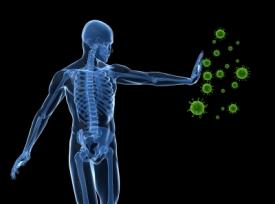STDs
Necessary information about STDs
We show you the most complete information about the different STDs. Find out about the diagnosis, symptoms, treatment, prevention and possible complications that different STDs can have. Get informed.

Sexually transmitted diseases also called venereal diseases, STDs, sexually transmitted infections or STIs.
Sexually transmitted diseases are infections or diseases acquired by a person after unprotected sexual relations with a person already infected. These relationships can be anal, vaginal or oral.
Some sexually transmitted diseases are also transmitted by blood contact, by transplantation of tissues and are transmitted from mother to child during pregnancy, childbirth or breastfeeding.
Sexually transmitted diseases can be caused by fungi, viruses, bacteria, protozoa (parasites), etc.
Sexually transmitted diseases: risk group
- Having unsafe sex such as anal, vaginal, oral without a condom.
- People with multiple sexual partners that have unprotected sex with strangers.
- Prostitution, unprotected sex with strangers.
- Adolescents, the beginning of sexual life at an early age and the lack of information regarding this topic.
- Drugs and alcohol promote high-risk sexual behaviours and also by sharing needles.
- Homosexuality in men, since anal sex can easily cause injuries to the anus and facilitate the entry of microbes.
- Victims of sexual abuse or rape by one or more assailants, as they may be infected and are not using contraception.
Sexually transmitted diseases: control and prevention
To better control sexually transmitted diseases we need to improve our general sexual and reproductive health.
Prevention is very important in the management of these diseases, especially in the viral type such as HIV and herpes, as these have no cure and prevention is the only way to prevent further spreading.
Here are some tips on preventing sexually transmitted diseases:
- Suspicions you may have a disease, whenever you suspect you may have a disease, either through sexual contact or infected fluids with someone, you must visit the doctor.
- Maintain relationships with a single partner in this case, both partners should be tested before initiating sexual contact, especially if one of the partners has had any risky contact before this relationship.
- Use condoms with strangers, as they are proven to be effective (95% approx.) in the prevention of sexually transmitted diseases.
- Pregnant women, every woman should have blood tests when she knows or thinks she knows that she is pregnant because diseases can be transmitted to the unborn child.
- Injuries to the genitals, before you get any blister or pimple on the sexual organs you should seek medical attention to diagnose the cause.
Sexually transmitted diseases: more common
Here are some of the more common sexually transmitted diseases:
AIDS Amebiasis Bacterial vaginosis Chancroid
Chlamydia Condylomata Crabs Cytomegalovirus
Genital herpes Genital thrush Gonorrhoea Granuloma inguinale
Hepatitis B Human papillomavirus Infectious mononucleosis Lymphogranuloma venereum
Molluscums Mycoplasma genitalium Non gonococcal urethritis Pelvic inflammatory disease
Most popular FAQs
Questions by recent users
- hello, am not sure but I think I might be pregnant as i had unprotected sex during my fertile days the test says negative but my tummy hasn't stopped hurting
- The fourth time in about 6 months that i'll be using the after morning pill... is it safe?
- Hi I got all the symptoms for pregnancy but the pregnancy test shows negatives
- Please can you contact me to discuss adding our services to your site - see www.nupas.co.uk. We are contracted by 60 CCGs to provide TOPs across the UK, Many thanks
- What do I have to take with me on the day of surgery?



